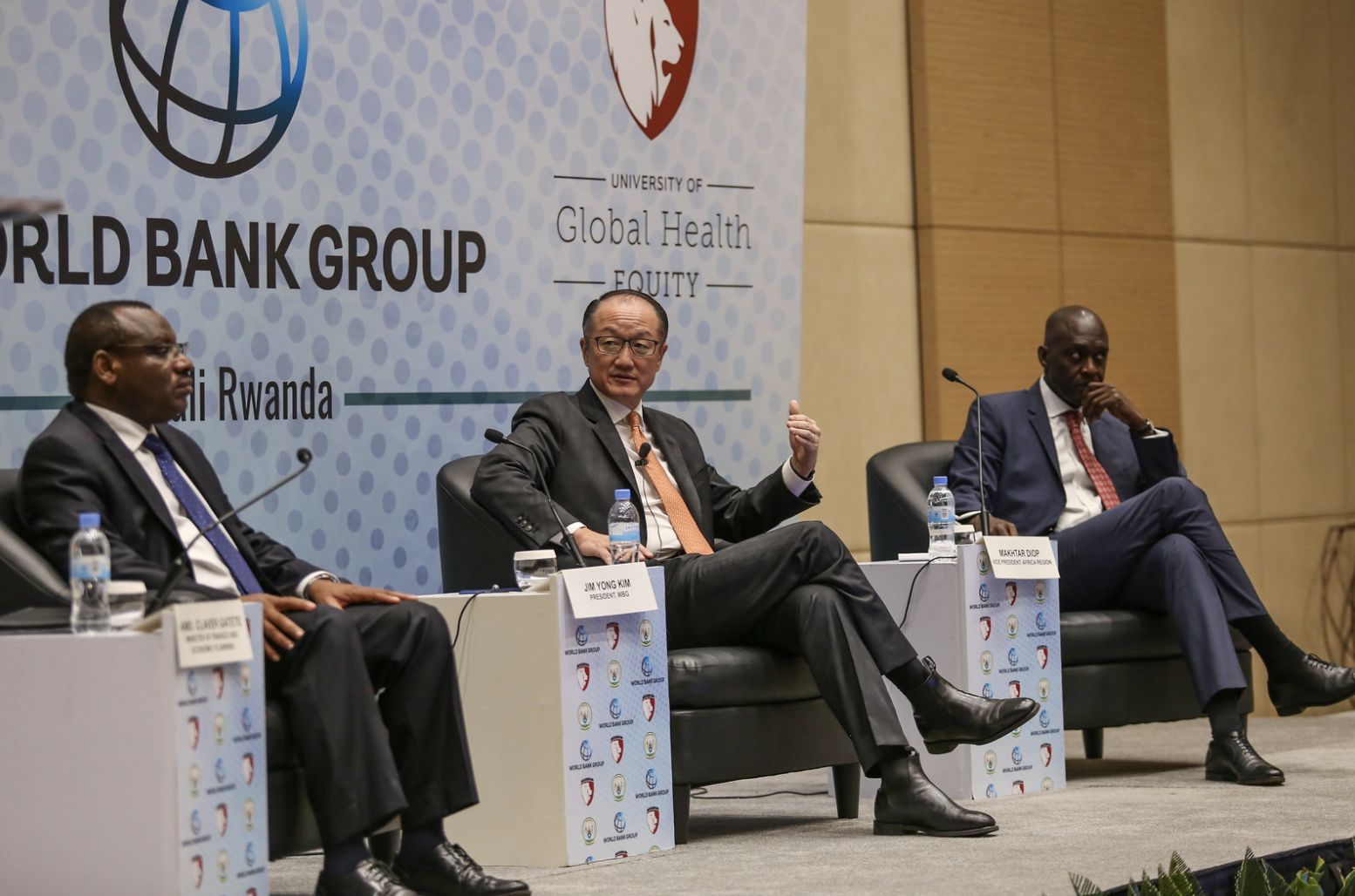Makhtar Diop Named First African CEO of International Finance Corporation
Rwanda’s Minister of Finance Claver Gatete, World Bank President Jim Yong Kim, and World Bank Vice President for Africa Makhtar Diop take part in a discussion on New Approaches to Global Challenges. (Flickr)
Makhtar Diop made history after his appointment to head the International Finance Corporation (IFC), the private investment wing of the World Bank, on February 18. Effective March 1, the Senegalese economist became the first African to hold the position.
The IFC principally aims to advance global economic development by expanding the private sector. This includes creating new markets, attracting investors to finance projects in developing countries, and providing financial and economic expertise.
Although the CEO of the IFC has traditionally hailed from Europe, Africa’s rapidly growing economy necessitates local representation at the highest levels of policymaking. According to Ken Opalo, Assistant Professor in the School of Foreign Service at Georgetown University, organizations like the IFC have traditionally “operate[ed] under their own logic, with little influence coming from African states.” Likewise, the change in leadership comes at a time when a quarter of the IFC’s operations happens on the African continent, up from just five percent 25 years ago.
Beginning his career as a financial analyst for the Union of Senegalese Banks, Diop most recently held the positions of Vice President of Infrastructure and Vice President of Africa at the World Bank. His name was on a shortlist given to World Bank President David Malpass who, after bringing Diop before the board of directors, announced the nomination on Twitter. Malpass praised Diop’s “leadership and experience in development, infrastructure, finance, Africa, and more [which] will help IFC pursue private sector development goals.”
Diop’s experience with the World Bank has provided him with unparalleled expertise to tackle challenges in the developing world. While serving as Vice-President of Africa for the World Bank, Diop secured $70 billion in commitments to address problems including youth and female economic empowerment among others.
Even though the appointments of Makhtar Diop as IFC president and Ngozi Okonjo-Iweala as Director-General of the World Trade Organization (WTO) mark important milestones in terms of representation, structural issues still preclude bureaucratic reforms. According to Opalo, “As an arm of the World Bank, the IFC will continue to be biased towards investing in higher-income countries, or on specific projects in low-income countries (including in Africa) that generate good returns… The importance of both appointments is in their symbolism. While both Diop and Okonjo-Iweala are respected globally, the fact of the matter is that the two institutions that they now lead will remain hard to change.”
Diop’s appointment comes at a precarious time in African economics. In 2020, seven of the ten fastest-growing economies in the world were in Africa (Egypt, Ethiopia, Ghana, Côte d’Ivoire, Kenya, Rwanda, and Uganda), but the COVID-19 pandemic has hit the continent hard. Data from the Center for International Governance Innovation reported a 3.2 percent contraction of the African economy as global demand has collapsed and supply chains fractured. Further, the International Growth Center estimated that 9.1 percent of the population of Sub-Saharan Africa has fallen into extreme poverty since the beginning of the pandemic. The private sector drives growth in Sub-Saharan Africa and, as a result, the IFC represents an important stakeholder in the future of African economies.

